A different sort of normal (and proud): What it’s like to get an autism diagnosis at 33
Published on: 26 July 2021 Author: Abigail Balfe
Author and illustrator Abigail Balfe has written A Different Sort of Normal, a true story of ‘growing-up-autistic-and-not-knowing-I-was-autistic’. Here’s why she feels she can finally accept herself – and she wants every child out there to feel the same.
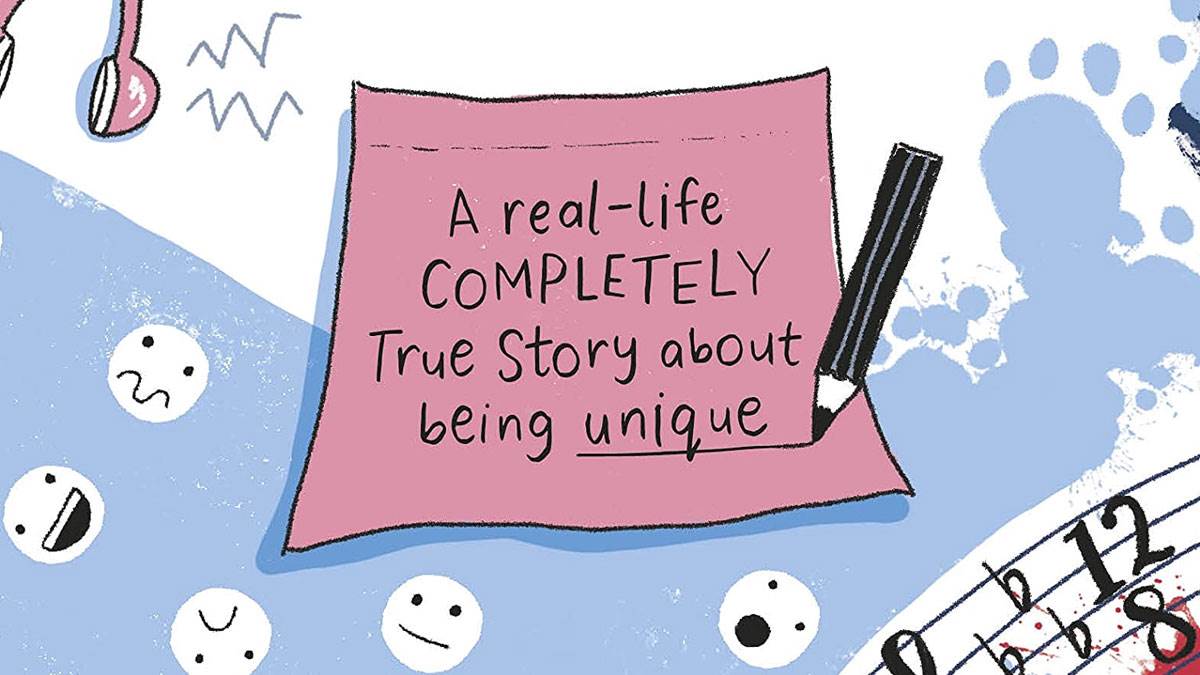
My name is Abigail. I am 36 and I’m autistic. I have always been autistic, but I didn’t discover my autism until I was 33.
A Different Sort of Normal is my real-life story about growing up in the confusing “normal” world, all the while missing some Very Important Information about myself.
The fully illustrated title is suitable for ages 9+ and is out now.
The story behind the story
I spent the majority of my childhood and adult life feeling awkward and out of place, like I just didn’t fit in with any of the people around me – nor the rules and expectations created by society. So when I was diagnosed as autistic at the age of 33, it was as if all the difficult and confusing parts of my life suddenly started to make sense.
Finally I had a reason for feeling different from those around me.
Finally my lifelong struggles didn’t feel like weaknesses anymore.
Finally I was able to start accepting myself fully and without limitation.
I was studying for an MA in Children’s Book Illustration at the time and found myself scribbling thoughts and facts and memories in my sketchbook, making sense of my life on paper with doodles and words. As these words and pictures started to come together, I began to realise just how helpful an Actual Real Book telling my story could be for children struggling to fit in.
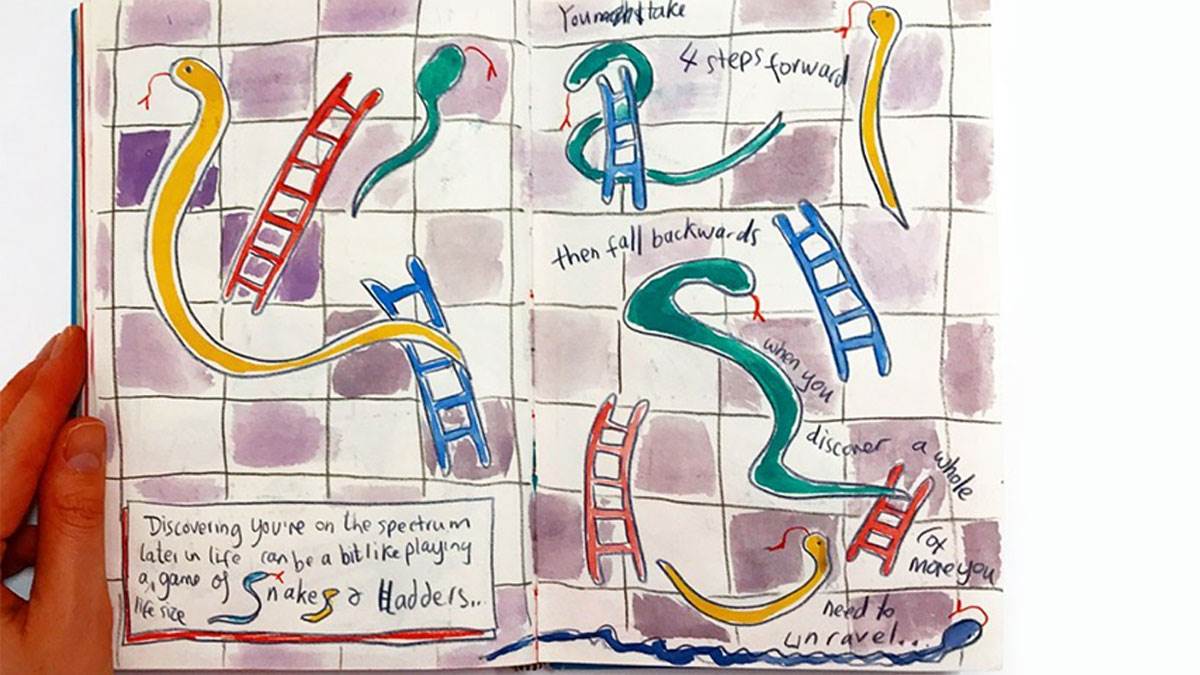
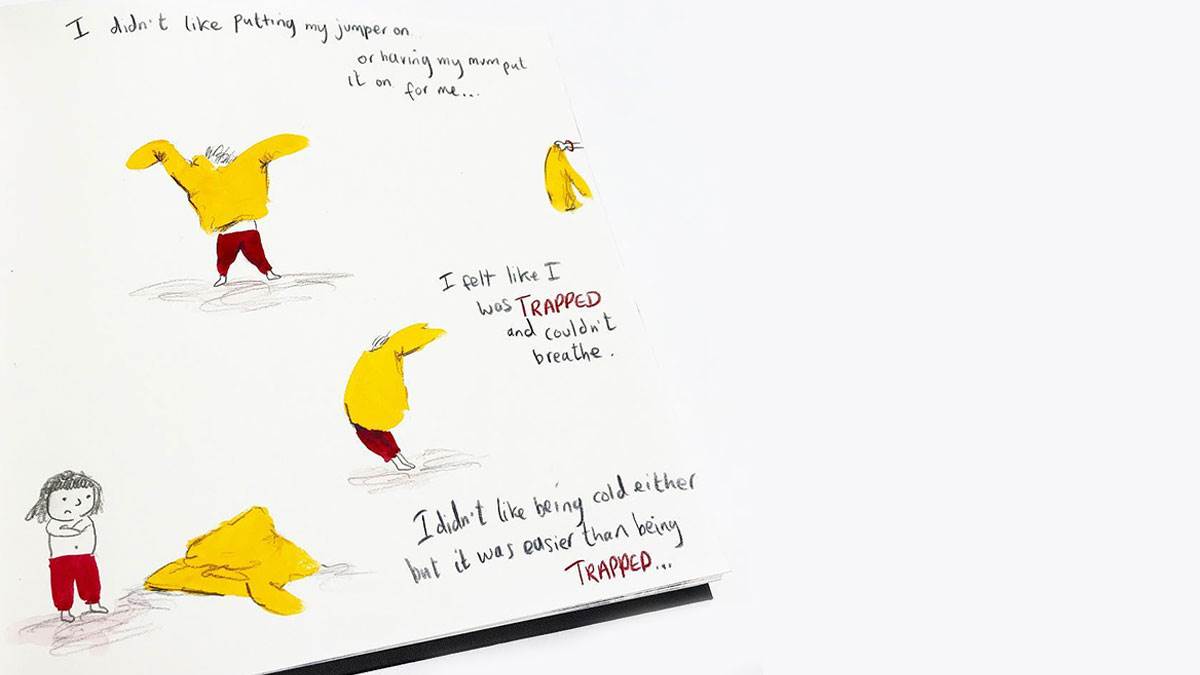
A Different Sort of Normal is my real-life growing-up-autistic-and-not-knowing-I-was-autistic story. It’s full of thoughts and memories and facts about autism, as well as lots and lots of colourful drawings on every page. (Cats feature heavily. So do toilets.)
It really is a book for everyone. Not just autistic children, or children who think they’re autistic. It’s a book for anyone who has ever felt out of place. Anyone who has grappled with trying to feel or appear “normal”. As well as everyone who has ever known someone who has felt like this.
There is something universal about feeling like you don’t fit in, and each of us experiences the world differently. I wanted to show children that despite those feelings and struggles, it’s possible to be happy and at peace with yourself. The things that set you apart from others are also the things that make you unique and important.
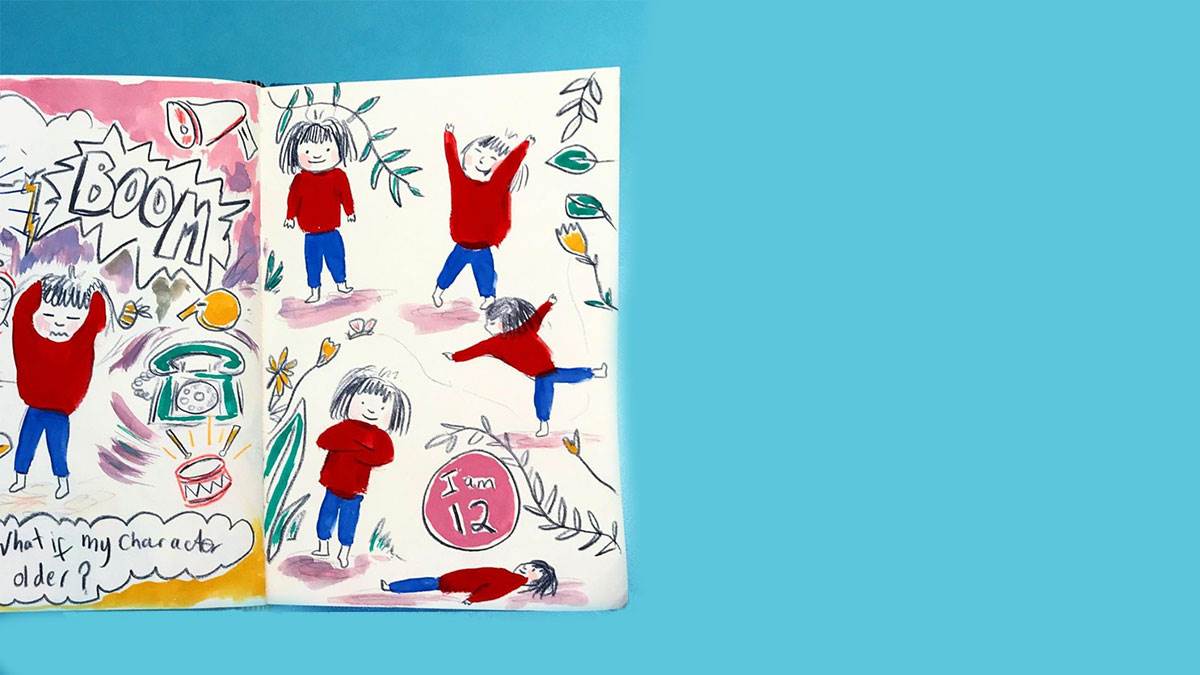
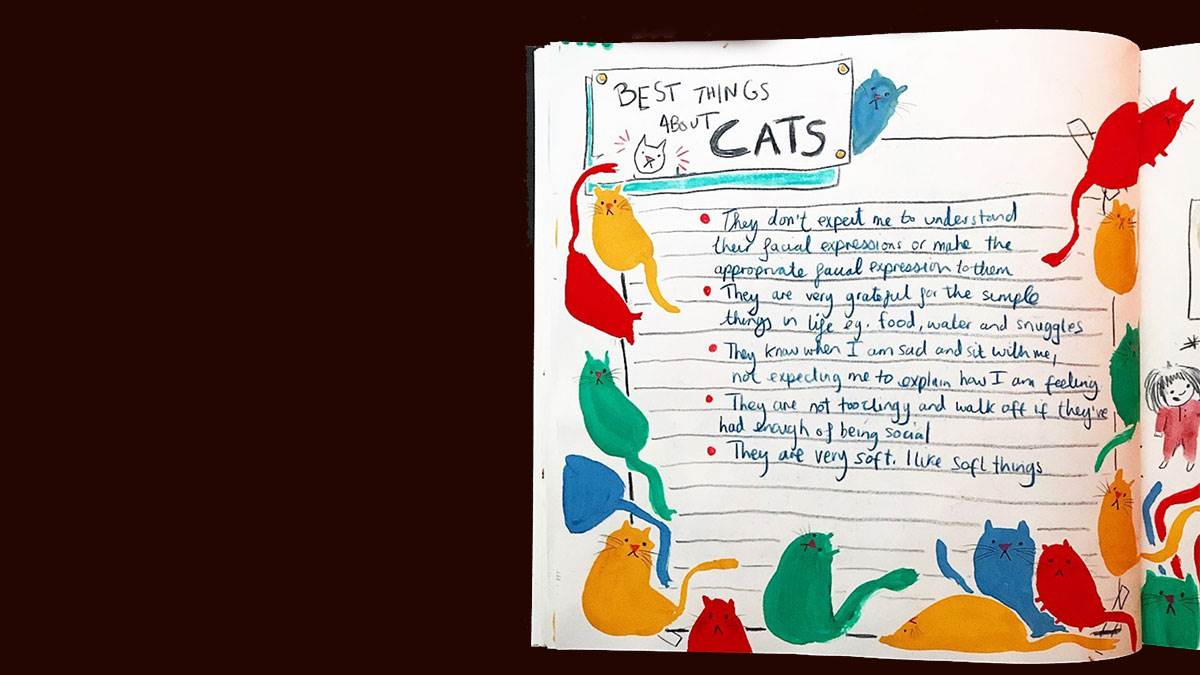
Underdiagnosed autism and stereotyping
Rewind to summer 2017. I was researching autism, because...well – I thought I might be autistic. I’d gone through my whole life up until that point just thinking I was “weird” or a “freak”, as the other children at school used to call me. But in my thirties I started to realise there might actually be an underlying reason for my so-called weirdness...
I knew a couple of women who were diagnosed as autistic in their late twenties and I recognised that we shared some similar traits… So I read articles, I watched YouTube videos, I scrolled hashtags on social media and followed some eye-opening autism-related accounts by autistic creators…
Autism quickly became my new special interest. I was more obsessed with autism than I was with that one specific EastEnders episode that I based my entire GCSE coursework on in 1999. (And I was VERY obsessed with that episode…)
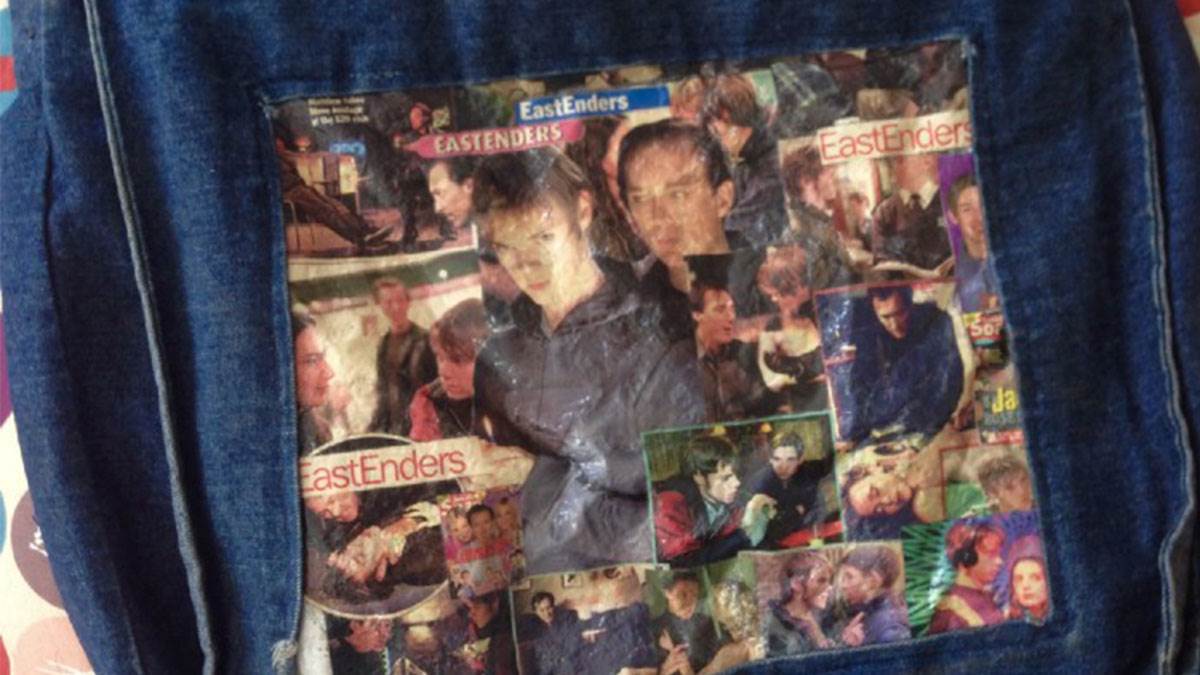 My EastEnders bag I made using cuttings from soap magazines when I was 14. I got an A in Textiles and was very proud of it.
My EastEnders bag I made using cuttings from soap magazines when I was 14. I got an A in Textiles and was very proud of it.
During my online research; before, during and after my diagnosis, I became increasingly aware that many children and adults were currently missing out on an autism diagnosis due to factors like gender, race, location and socio-economic background, along with harmful stereotypes and misconceptions around autism preventing many from making this discovery for themselves or for their family members.
I created Instagram posts addressing some of the research I’d uncovered and I watched as more and more autistic people came forward to share their stories with me and to tell me they were now seeking diagnoses for themselves.
I’m extremely privileged to have had access to an NHS diagnosis here in the UK and am pleased to have been able to use that privilege to tell my own story. A story that I have been told many others can relate to. In publishing my story, I hope to help children embrace their own different sort of normal; while ideally playing a part in quashing some myths around autism along the way.
Not all about autism. But definitely all about autism.
Sometimes I hear allistic (non-autistic) people say “You shouldn’t let your autism define you!” and “You are more than your autism!” But, actually, my autism is part of everything I am and everything I do. It affects my relationships, my likes and dislikes, my sensory sensitivities, my emotions, my limits, my capabilities, my reaction to stress and excitement and pleasure and pain. It affects what I can eat, the clothes I can wear, the amount of time I can stay out of my house, and it affects my thoughts and feelings about all of these things too.
My growing up story isn’t just a story about being autistic. It’s a story about being me. There will be cats, pianos, friendship, the Spice Girls, Craig David, school, college, emojis, periods, star signs, toilets and of course plenty of POO*.
[* Perhaps not in the way you might be expecting though… But really – what sort of poo are you expecting from me? Good question. Please leave your comments below.]
Without my autism, I wouldn’t be me. I am proud to be autistic and I am proud to be me. Because these are both the same thing!
For some reason, we grow up believing that one brain type is superior to others, that the neurotypical brain is “normal” and the neurodivergent brain is not. But imagine if we simply accepted that all brains are different? That there is no ideal or perfect brain? That each of us has something unique and magical and important to offer the world – and that simply being ourselves is enough.
I am proud to be a different sort of normal.
And I hope children reading / listening to my book will learn to be proud to be a different sort of normal, too.
Find more relevant books
Here are some inclusive books that look at autism or reflect other forms of diversity.
Autism
We believe that books are a great way to raise awareness and improve understanding of different experiences. This booklist aims to provide a range of children's and teens' books that feature characters who are autistic, or who have Autistic Spectrum Conditions.
Finding inclusive books
This list aims to help you to find early years books showing positive images of disability, as well as titles that may prove useful in discussing disability and diversity.
Topics: Autistic spectrum conditions, Features







